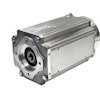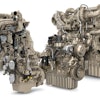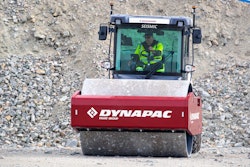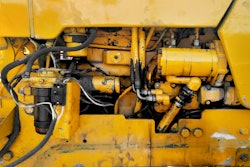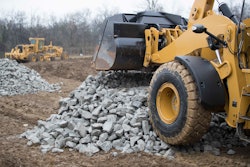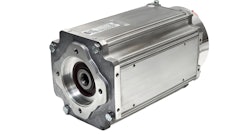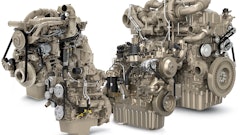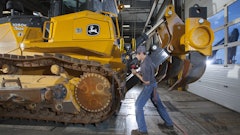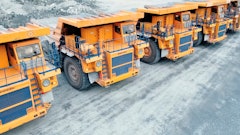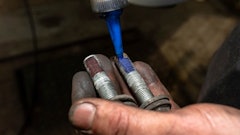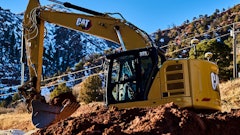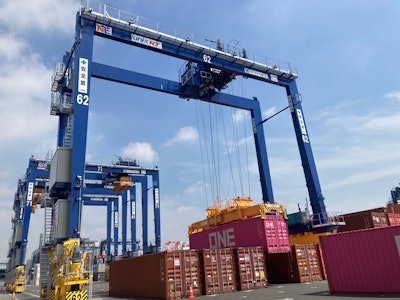
Recently, PACECO announced the start of its hydrogen fuel-cell powered gantry crane. In partnership with MITSUI E&S, the company is debuting the world's first gantry crane powered by hydrogen fuel cell technology. This new step forward is expected to help pave a more sustainable future for machines like the gantry crane.
According to the press release:
PACECO Corp., a container handling machinery company, announced the commencement of commercial operations of the world’s first hydrogen fuel cell powered rubber-tired gantry (RTG) Crane at the Port of Los Angeles, setting a new standard for zero-emission port operations. The H2-ZE RTG Transtainer Crane, developed in collaboration with MITSUI E&S and with funding from the Japanese New Energy and Industrial Technology Development Organization (NEDO), began operations at Yusen Terminals Inc. (YTI) on May 15, 2024, marking the first time a fully hydrogen-powered RTG crane has gone into commercial operation in the world.
The H2-ZE RTG Transtainer Crane runs 100% on fuel-cell hydrogen technology, representing an unprecedented first for terminal operations, offering the ability to achieve zero emissions on large container cranes without connecting to the electric grid. The hydrogen fuel cell powered zero-emission rubber-tired gantry (RTG) crane was developed by MITSUI E&S in collaboration with PACECO and built by MITSUI E&S in Japan. The fuel-cell power pack (FCPP), an efficient power system replacing a typical diesel genset, was designed and built by MITSUI E&S in Oita, Japan, with hydrogen being provided by Toyota Tsusho for this project. Modification of existing conventional diesel RTGs is possible to achieve zero emissions with the FCPP system.
A typical diesel-powered RTG crane emits the carbon dioxide equivalent of burning over 400 barrels of oil per year, while the H2-ZE RTG Transtainer Crane emits nothing. This pilot project, scheduled to run over the next four years at Yusen Terminals at the Port of Los Angeles, demonstrates PACECO’s commitment to sustainable port logistics, aligning with global efforts to reduce port emissions while embracing zero-emission technology.
"By bringing the H2-ZE RTG Transtainer Crane into operation, we are not just introducing new fuel technology for cranes but are leading the way for our industry to reduce emissions significantly,” said Troy Collard, general manager of sales at PACECO. “We are excited that this crane is in operation here in Los Angeles and are thankful to our pilot partners for all of their support throughout the process."
Initially, the crane will operate for 16 hours per day and will perform at the same efficiency as a conventional diesel-powered or hybrid RTG crane. In addition to emissions reduction, the crane offers reducing noise pollution for port workers.
“The debut of the H2-ZE RTG Transtainer Crane at the Port of Los Angeles marks a significant advancement in port technology,” said Takunari Minamizono, project manager at MITSUI E&S. “MITSUI E&S is proud to drive this innovation, showcasing hydrogen fuel cell capabilities and emphasizing our commitment to sustainability. We continue to lead in developing advanced technologies that both enhance the efficiency and environmental friendliness of port operations.”
PACECO's pioneering initiative represents a significant step for the global maritime logistics industry's sustainability efforts. PACECO is looking forward to showcasing the great financial and environmental impacts of this crane following the pilot and is eager to expand to further locations.
"YTI is proud to host this groundbreaking demonstration project from PACECO,” said Alan McCorkle, president & CEO at Yusen Terminals. “Bringing the H2-ZE RTG Transtainer Crane into operation at our terminal is a critical step towards a zero-emissions terminal. This crane will help support the Port of LA’s ambitious sustainability goals, namely the Clean Air Action Plan, in reducing the emissions that affect overburdened communities near the port."
This project is partially subsidized by the New Energy and Industrial Technology Development Organization (NEDO) as part of an overall project encompassing a demonstration of the hydrogen supply chain, from local production of clean hydrogen to the consumption point of port container handling equipment and drayage trucks powered by hydrogen fuel cell technology.


